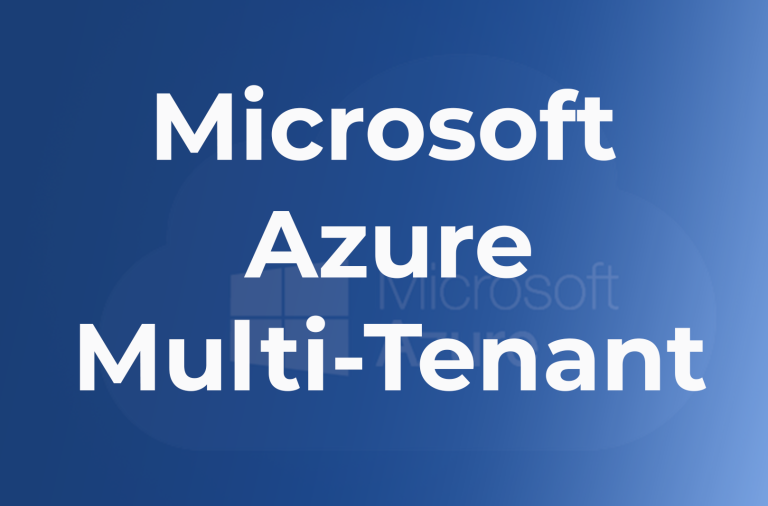
Is your business struggling to keep up with the demands of IT management? Are you overwhelmed with the constant need for software updates, network security, and data backups? If so, it’s time to unlock the power of managed service providers (MSPs) and revolutionize your business.
Managed service providers offer a wide range of comprehensive IT services, becoming an integral part of your business strategy. With their expertise and resources, MSPs can proactively manage and monitor your IT infrastructure, ensuring that your systems are secure, efficient, and up-to-date.
By partnering with an MSP, you can free up your internal IT team to focus on strategic initiatives, rather than the day-to-day tasks of IT management. This enables your business to become more agile, responsive, and competitive in today’s fast-paced digital landscape.
In addition to managing your IT infrastructure, MSPs also provide crucial support and guidance, helping you leverage the latest technologies and solutions. From cloud computing and cybersecurity to data analytics and business continuity, MSPs are well-equipped to address your unique technology needs.
Stay ahead of the competition and take your business to new heights. Embrace the power of managed service providers and unlock the full potential of your IT infrastructure.
What are managed service providers (MSPs)?
Managed service providers, commonly known as MSPs, are third-party companies that offer comprehensive IT services to businesses. These providers take on the responsibility of managing and monitoring a company’s IT infrastructure, including servers, networks, security systems, and software applications. MSPs work closely with their clients to ensure that their technology needs are met efficiently and effectively.
MSPs typically offer a range of services, including network management, data backup and recovery, cybersecurity, cloud computing, software updates, and technical support. They employ a team of skilled professionals who specialize in various aspects of IT management, allowing businesses to access a wide range of expertise without the need for internal hiring or training.
One of the key advantages of working with an MSP is the proactive approach they take towards IT management. Rather than waiting for issues to arise, MSPs constantly monitor and maintain a company’s IT infrastructure to identify and address potential problems before they become critical. This proactive approach helps businesses minimize downtime, improve system performance, and enhance overall productivity.
Advantages of using managed service providers
Partnering with a managed service provider offers numerous advantages for businesses of all sizes. Here are some key benefits of using MSPs:
- Cost savings: Hiring and maintaining an in-house IT team can be expensive. By outsourcing IT management to an MSP, businesses can reduce labor costs, eliminate the need for additional office space, and avoid investing in expensive hardware and software.
- Access to expertise: MSPs employ a team of highly skilled professionals who specialize in various aspects of IT management. By working with an MSP, businesses gain access to a wide range of expertise and experience without the need for internal training or hiring.
- Proactive monitoring and maintenance: MSPs proactively monitor and maintain a company’s IT infrastructure, ensuring that systems are secure, efficient, and up-to-date. This proactive approach helps prevent downtime, minimize disruptions, and improve overall system performance.
- Scalability and flexibility: MSPs offer flexible solutions that can easily scale to meet the changing needs of a business. Whether a company is experiencing rapid growth or downsizing, an MSP can adjust the level of service accordingly, ensuring that IT resources are aligned with business objectives.
- Focus on core business functions: By outsourcing IT management to an MSP, businesses can free up their internal IT team to focus on strategic initiatives and core business functions. This allows for increased agility, responsiveness, and innovation, ultimately driving business growth.
- Enhanced security and compliance: MSPs specialize in cybersecurity and data protection, helping businesses mitigate the risk of cyber threats and ensure compliance with industry regulations. MSPs implement robust security measures, perform regular security audits, and provide ongoing support to safeguard sensitive data.
In summary, partnering with a managed service provider offers businesses numerous advantages, including cost savings, access to expertise, proactive monitoring and maintenance, scalability and flexibility, focus on core business functions, and enhanced security and compliance.
Common services offered by MSPs
Managed service providers offer a wide range of services to meet the diverse IT needs of businesses. Here are some common services provided by MSPs:
- Network management: MSPs monitor and manage a company’s network infrastructure to ensure optimal performance, troubleshoot issues, and implement necessary upgrades or expansions.
- Data backup and recovery: MSPs create data backup solutions to protect against data loss and ensure business continuity in the event of a disaster. They also provide efficient data recovery solutions to minimize downtime and restore normal operations quickly.
- Cybersecurity: MSPs implement robust security measures to protect against cyber threats, including firewalls, antivirus software, intrusion detection systems, and encryption. They also conduct regular security audits and provide employee training to enhance security awareness.
- Cloud computing: MSPs offer cloud computing solutions, allowing businesses to leverage the flexibility, scalability, and cost-efficiency of cloud technology. They help migrate data and applications to the cloud, manage cloud infrastructure, and provide ongoing support.
- Software updates and patch management: MSPs ensure that software applications are up-to-date with the latest patches and updates. This helps prevent security vulnerabilities and ensures optimal performance and compatibility.
- Technical support: MSPs provide technical support to address IT issues and resolve user queries. They offer help desk services, remote support, and on-site assistance as needed.
These are just a few examples of the services offered by managed service providers. MSPs work closely with their clients to understand their unique IT needs and tailor solutions accordingly.
How MSPs can revolutionize your business
Managed service providers have the potential to revolutionize businesses by transforming the way IT is managed and utilized. Here’s how MSPs can revolutionize your business:
- Increased efficiency and productivity: By outsourcing IT management to an MSP, businesses can streamline their IT processes, improve system performance, and eliminate inefficiencies. This leads to increased productivity across the organization and enables employees to focus on their core responsibilities.
- Improved system reliability and uptime: MSPs proactively monitor and maintain a company’s IT infrastructure to identify and address potential issues before they cause disruptions. This helps improve system reliability and minimize downtime, ensuring that employees can work without interruptions.
- Access to cutting-edge technology: MSPs stay up-to-date with the latest advancements in technology, allowing businesses to leverage the most innovative solutions. This enables companies to gain a competitive edge, drive innovation, and adapt to changing market dynamics.
- Enhanced data security: MSPs specialize in cybersecurity and data protection, implementing robust security measures to safeguard sensitive information. This helps businesses mitigate the risk of data breaches and comply with industry regulations, enhancing customer trust and reputation.
- Cost savings: Partnering with an MSP can significantly reduce IT-related costs. By outsourcing IT management, businesses can avoid the need for expensive hardware and software investments, as well as the costs associated with hiring and training an internal IT team.
- 24/7 monitoring and support: MSPs provide round-the-clock monitoring and support, ensuring that any IT issues are promptly addressed. This minimizes downtime and allows businesses to operate smoothly, even outside regular office hours.
In summary, managed service providers can revolutionize businesses by increasing efficiency and productivity, improving system reliability and uptime, providing access to cutting-edge technology, enhancing data security, generating cost savings, and offering 24/7 monitoring and support.
Choosing the right MSP for your business
Choosing the right managed service provider is crucial for the success of your business. Here are some key factors to consider when selecting an MSP:
- Expertise and experience: Evaluate the MSP’s expertise and experience in managing IT infrastructures similar to yours. Look for certifications, case studies, and client testimonials to gauge their capabilities.
- Service offerings: Assess the range of services offered by the MSP and ensure that they align with your business needs. Consider both current and future requirements to ensure scalability.
- Security measures: Inquire about the MSP’s security measures and protocols to protect your data and systems. Ask about their approach to cybersecurity, backup and recovery, and compliance with relevant regulations.
- Response time and support: Determine the MSP’s response time and support availability. Ideally, they should offer 24/7 monitoring and support, with quick response times for critical issues.
- Scalability and flexibility: Consider the MSP’s ability to scale their services as your business grows or changes. Ensure that they can accommodate your evolving technology needs and provide flexible solutions.
- Reputation and reliability: Research the MSP’s reputation and reliability in the industry. Read reviews, seek recommendations, and assess their track record to ensure that they have a history of delivering quality services.
By carefully evaluating these factors, you can choose an MSP that meets your specific requirements and aligns with your business goals.
Key considerations when working with a managed service provider
Working with a managed service provider requires effective collaboration and communication. Here are some key considerations to ensure a successful partnership:
- Clear expectations: Clearly define your expectations and goals from the partnership. Communicate your business objectives, technology needs, and desired outcomes to the MSP.
- Regular communication: Maintain regular communication with the MSP to stay informed about the status of your IT infrastructure, ongoing projects, and any potential issues. This ensures transparency and helps address concerns promptly.
- Service level agreements (SLAs): Establish clear SLAs with the MSP to define the scope of services, response times, and performance metrics. Regularly review and update SLAs to ensure they align with your evolving business needs.
- Collaborative problem-solving: Foster a collaborative approach with the MSP to address any IT challenges or issues that may arise. Encourage open communication and work together to find effective solutions.
- Continuous improvement: Continuously evaluate the performance of the MSP and provide feedback on areas that require improvement. Encourage the MSP to suggest innovative solutions and optimizations to enhance your IT infrastructure.
By considering these factors and fostering a collaborative partnership, you can maximize the benefits of working with a managed service provider and achieve your business objectives.
Case studies: Success stories of businesses using MSPs
To understand the impact that managed service providers can have on businesses, let’s explore some success stories:
- Company XYZ: Company XYZ, a rapidly growing e-commerce business, struggled to keep up with the increasing demands of IT management. By partnering with an MSP, they were able to scale their IT infrastructure, improve system performance, and enhance cybersecurity measures. This allowed them to handle a surge in website traffic, ensure a seamless customer experience, and drive revenue growth.
- Company ABC: Company ABC, a mid-sized manufacturing company, faced challenges in managing their network infrastructure and data backup processes. With the help of an MSP, they implemented a robust network management solution and a reliable data backup system. This significantly reduced downtime, improved system reliability, and ensured business continuity, even in the event of a disaster.
- Company DEF: Company DEF, a healthcare organization, required specialized IT support to comply with industry regulations and protect patient data. By partnering with an MSP that specialized in healthcare IT, they were able to enhance data security, implement electronic medical records (EMR) systems, and improve overall operational efficiency. This allowed them to focus on delivering quality patient care while maintaining compliance with strict regulations.
These case studies highlight the transformative impact that managed service providers can have on businesses across various industries. By leveraging the expertise and resources of MSPs, companies can overcome IT challenges, drive growth, and achieve their strategic objectives.
The future of managed service providers
As technology continues to evolve at a rapid pace, the role of managed service providers will become increasingly important. Here are some trends that are shaping the future of MSPs:
- Artificial intelligence (AI) and automation: MSPs are increasingly incorporating AI and automation technologies into their service offerings. This allows for more efficient monitoring, faster response times, and improved system optimization.
- Cloud-native solutions: With the rise of cloud computing, MSPs are developing cloud-native solutions that leverage the full potential of the cloud. This enables businesses to scale their IT resources, improve agility, and reduce costs.
- Managed security services: As cyber threats continue to evolve, MSPs are placing a greater emphasis on cybersecurity. Managed security services are becoming more sophisticated, incorporating advanced threat detection and response capabilities.
- Internet of Things (IoT) management: With the proliferation of IoT devices, businesses are turning to MSPs to manage and secure their IoT infrastructure. MSPs provide monitoring, maintenance, and security services for IoT devices, ensuring optimal performance and minimizing vulnerabilities.
- Data analytics and artificial intelligence: MSPs are increasingly utilizing data analytics and AI technologies to provide actionable insights and predictive analytics. This allows businesses to make data-driven decisions and optimize their IT infrastructure for improved performance.
The future of managed service providers is bright, as businesses continue to rely on their expertise and resources to navigate the complex world of IT management.
Questions to ask potential managed service providers
When evaluating potential managed service providers, it’s important to ask the right questions to ensure a successful partnership. Here are some key questions to consider:
- What industries do you specialize in?: Determine if the MSP has experience working with businesses in your industry. Industry-specific knowledge can be crucial in addressing unique technology needs and compliance requirements.
- What certifications and accreditations do you hold?: Inquire about the MSP’s certifications and accreditations related to IT management and cybersecurity. This ensures that they have the necessary expertise and adhere to industry best practices.
- What security measures do you have in place?: Ask about the MSP’s security measures, including firewalls, antivirus software, intrusion detection systems, and encryption. Inquire about their approach to data protection and compliance with relevant regulations.
- How do you handle disaster recovery and business continuity?: Assess the MSP’s disaster recovery and business continuity plans. Inquire about their backup solutions, recovery time objectives (RTOs), and recovery point objectives (RPOs).
- What is your response time for critical issues?: Determine the MSP’s response time for critical IT issues. Ensure that they offer round-the-clock monitoring and support to minimize downtime and disruptions.
- How do you handle scalability and flexibility?: Ask about the MSP’s ability to scale their services as your business






